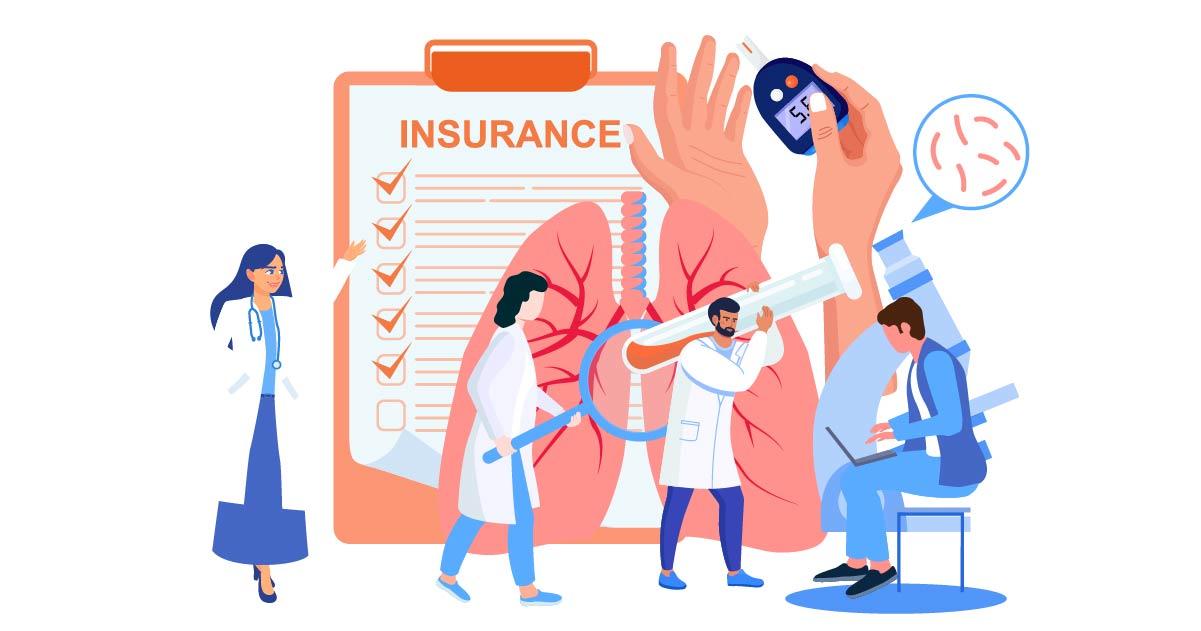Notifications

8 minutes, 59 seconds
-6 Views 0 Comments 0 Likes 0 Reviews

Health insurance is no longer just a safety net—it’s a necessity. With rising medical costs, having a health insurance policy ensures financial security during unexpected medical emergencies. But what if you already have a health condition? Does that mean you won’t be eligible for coverage?
The good news is that many medical insurance plans do offer coverage for pre-existing conditions, although there may be some terms and conditions attached. In this article, we’ll explore what pre-existing conditions are, how they impact your health insurance policy, and how you can still secure the best coverage despite having one.
A pre-existing condition refers to any medical issue, illness, or disease you had before purchasing a health insurance policy. These conditions can include:
Chronic illnesses such as diabetes, hypertension, and asthma
Serious diseases like heart conditions, cancer, or kidney disorders
Past surgeries or ongoing treatments for health issues like joint replacements
Mental health conditions such as depression and anxiety
Before insurance regulations improved, many people with pre-existing conditions found it difficult to get health insurance. However, today, insurers cannot deny coverage based on pre-existing conditions. Instead, they impose a waiting period before these conditions are covered.
Absolutely! Many of the best health insurance companies now provide coverage for pre-existing conditions. However, there are some key factors to keep in mind:
Most medical insurance plans impose a waiting period for pre-existing conditions, typically between 24 to 48 months. This means that any hospitalisation or treatment related to your pre-existing condition won’t be covered during this time.
However, after completing this waiting period, your health insurance policy will cover your medical expenses like any other condition. Some insurers even offer an option to reduce the waiting period by paying an additional premium.
If you don’t make any claims in a policy year, you become eligible for a No Claim Bonus (NCB). This means your sum insured increases without raising your premium. This is particularly beneficial for people with pre-existing conditions, as they can accumulate a higher coverage amount before needing to claim for their condition.
Many people assume that a standard health insurance policy is enough. However, if you have a serious health condition, critical illness insurance can be a game-changer. It provides a lump-sum payout upon diagnosis of specific life-threatening illnesses like cancer, stroke, or kidney failure.
This extra coverage helps cover high medical costs, lifestyle changes, or income loss during treatment. It’s a wise choice for those with a family history of serious illnesses or those at risk due to pre-existing conditions.
With so many options available, selecting the right health insurance policy can be overwhelming. Here are some essential tips to help you make an informed decision:
If you have a pre-existing condition, choosing a plan with a shorter waiting period is crucial. Some medical insurance plans allow policyholders to reduce the waiting period by paying an extra premium or opting for a higher coverage amount.
When selecting a health insurance policy, ensure that it provides:
Hospitalisation coverage
Pre-and post-hospitalisation expenses
Coverage for daycare procedures
Cashless treatment options
Alternative treatments like Ayurveda and Homeopathy
A comprehensive plan ensures that all your medical needs, including those related to pre-existing conditions, are covered.
If you have a serious pre-existing condition, adding critical illness insurance to your policy is a smart move. This ensures that even if your condition worsens, you’ll receive financial support without depleting your savings.
The best health insurance company will have a high claim settlement ratio (CSR), which means they process and approve claims efficiently. A high CSR ensures that you won’t have to struggle to get your rightful insurance benefits when you need them the most.
One of the best features of medical insurance plans is the ability to avail cashless treatment at network hospitals. This means the insurer directly settles your medical bills, reducing your out-of-pocket expenses.
Always check whether your preferred hospitals are part of the insurer’s network hospital list before buying a policy.
A cheaper policy may not always be the best option. Instead of focusing only on price, compare:
Coverage benefits
Waiting periods
Exclusions
Claim settlement ratio
Choosing a plan that offers the best value for money is always a wiser choice than going for the cheapest option.
The Insurance Regulatory and Development Authority of India (IRDAI) has introduced rules to protect individuals with pre-existing conditions:
Mandatory Coverage: Insurance companies cannot deny coverage due to pre-existing conditions.
Standardised Waiting Periods: Insurers must follow a fixed waiting period range (usually up to 48 months).
Portability Benefits: If you switch insurers, the waiting period served under your previous policy will be considered, reducing your waiting time under the new policy.
Thanks to these regulations, individuals with pre-existing conditions now have a fair chance of securing quality medical insurance plans without unnecessary roadblocks.
Not all insurers provide the same level of coverage and benefits. The best health insurance companies go the extra mile to ensure seamless claim processes, better coverage options, and reliable customer support.
Leading insurers like Niva Bupa offer medical insurance plans that are designed to accommodate individuals with pre-existing conditions. Their policies include:
Reduced waiting periods for pre-existing conditions
Cashless hospitalisation at top network hospitals
Comprehensive coverage for a wide range of illnesses
Critical illness insurance add-ons for life-threatening diseases
By choosing a trusted insurer like Niva Bupa, you can ensure financial security and peace of mind, knowing that your health is in safe hands.
Having a pre-existing condition doesn’t mean you have to compromise on quality healthcare. By choosing the right health insurance policy, understanding waiting periods, and opting for critical illness insurance, you can ensure that you and your family remain financially secure in times of medical need.
The key is to compare different medical insurance plans, check for hidden clauses, and select a policy from the best health insurance company that aligns with your healthcare needs.

